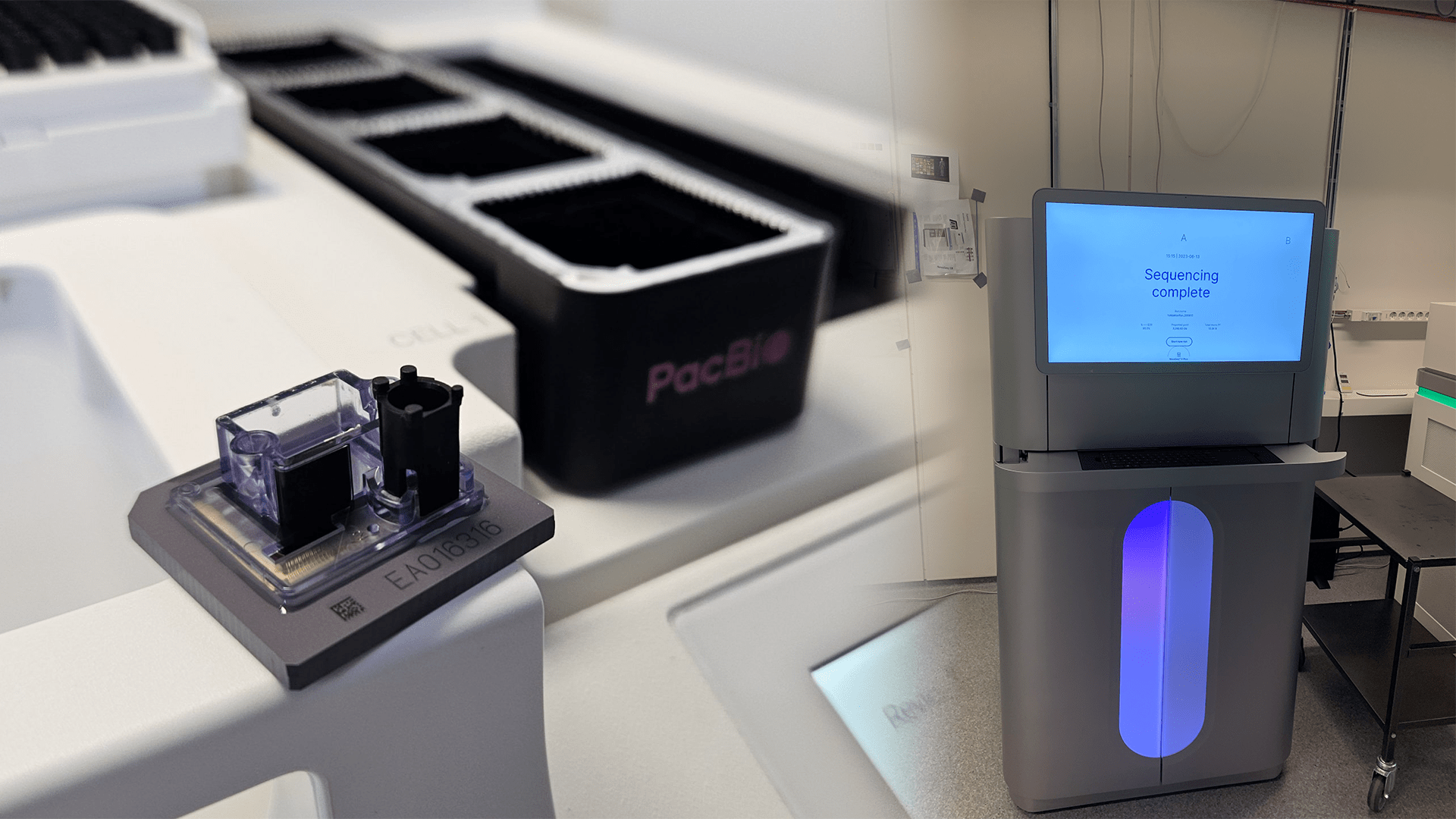New sequencing instruments at SciLifeLab boost genomics in Sweden
SciLifeLab has acquired new DNA sequencing instruments to cater to the growing demand and latest developments in genomics. These purchases are a testament of SciLifeLab’s commitment to advancing molecular life sciences, translational research, and high-throughput data for data-driven life science.
“These sequencing instruments allow Swedish researchers to pursue diverse applications of genomics – from biodiversity to human health – at the international forefront,” says Tuuli Lappalainen, Director of National Genomics Infrastructure & the Genomics Platform at SciLifeLab and Professor at KTH.
The NovaSeq X Plus instruments are now operational and open for user projects at KTH, Karolinska Institutet, and Uppsala University, with another one to be soon installed at Lund University.
Additionally, the National Genomics Infrastructure at Uppsala University has acquired a PacBio Revio instrument, also available for user projects.
The Illumina NovaSeq X Plus features:
The NovaSeq X Plus instruments signify a refinement and scale-up in short-read DNA sequencing technology:
- Operational Flexibility: The machines feature three different flow cell sizes, with the largest offering strong savings on reagent costs for large-scale sequencing applications such as human genome sequencing
- Efficiency: These instruments are twice as fast with a three times higher sequencing accuracy compared to the previous model.
- Environmental Consideration: The design incorporates lyophilized reagents, which can lead to reduced packaging size, weight, and waste, aiming for a lesser environmental impact
- Data Processing Capabilities: Inbuilt servers for initial data processing streamline operations and potentially reduce the need for extra investments in local e-infrastructure
Short-read sequencing forms the scalable backbone of biomolecular research across diverse areas of biology. Additionally, there are direct clinical applications. “The streamlined and affordable sequencing with the NovaSeq X Plus instruments facilitates the adoption of genomics as a part of the diagnostic process, with new approaches being developed and tested by the Clinical Genomics platform in collaboration with healthcare and Genomic Medicine Sweden,” says Valtteri Wirta, Platform Scientific Director at Clinical Genomics Stockholm at SciLifeLab and head of Genomic Medicine Center Karolinska at Karolinska university hospital.
”These new high-end instruments will significantly benefit research and diagnostic development for future healthcare applications, especially in cancer and in rare disease,” says Thoas Fioretos, Platform director of Clinical Genomics and professor and senior consultant in Clinical Genetics at Lund University.
The PacBio Revio features:
In recent years, long-read sequencing has advanced quickly, with National Genomics Infrastructure offering sequencing with both PacBio and Oxford Nanopore platforms. PacBio Revio’s single molecule real-time (SMRT) long-read sequencing system, released in early 2023, presents major advances:
- Capacity enhancement: Almost ten times higher throughput compared to earlier models, with simultaneous operation of multiple flow cells.
- Cost efficiency: significant cost savings compared to earlier state-of-the-art long read sequencing technologies
- Data Handling: An integrated GPU-based resource to process the sequencing data
“Scalable and affordable long-read sequencing with the PacBio Revio brings this technology within reach of many applications. We can now provide better genomic data on biodiversity and more complete discovery of complex genetic variants underlying human disease,” says Lars Feuk, Co-Director of NGI and the Genomics Platform at SciLifeLab and Professor at Uppsala University.
These acquisitions reflect SciLifeLab’s dedication to the latest technologies and high-throughput instrumentation to serve the Swedish community in biomolecular research and applications. These instrument purchases were made possible by funding from the Knut and Alice Wallenberg Foundation (KAW), The Swedish Research Council (VR), SciLifeLab calls, and universities.





